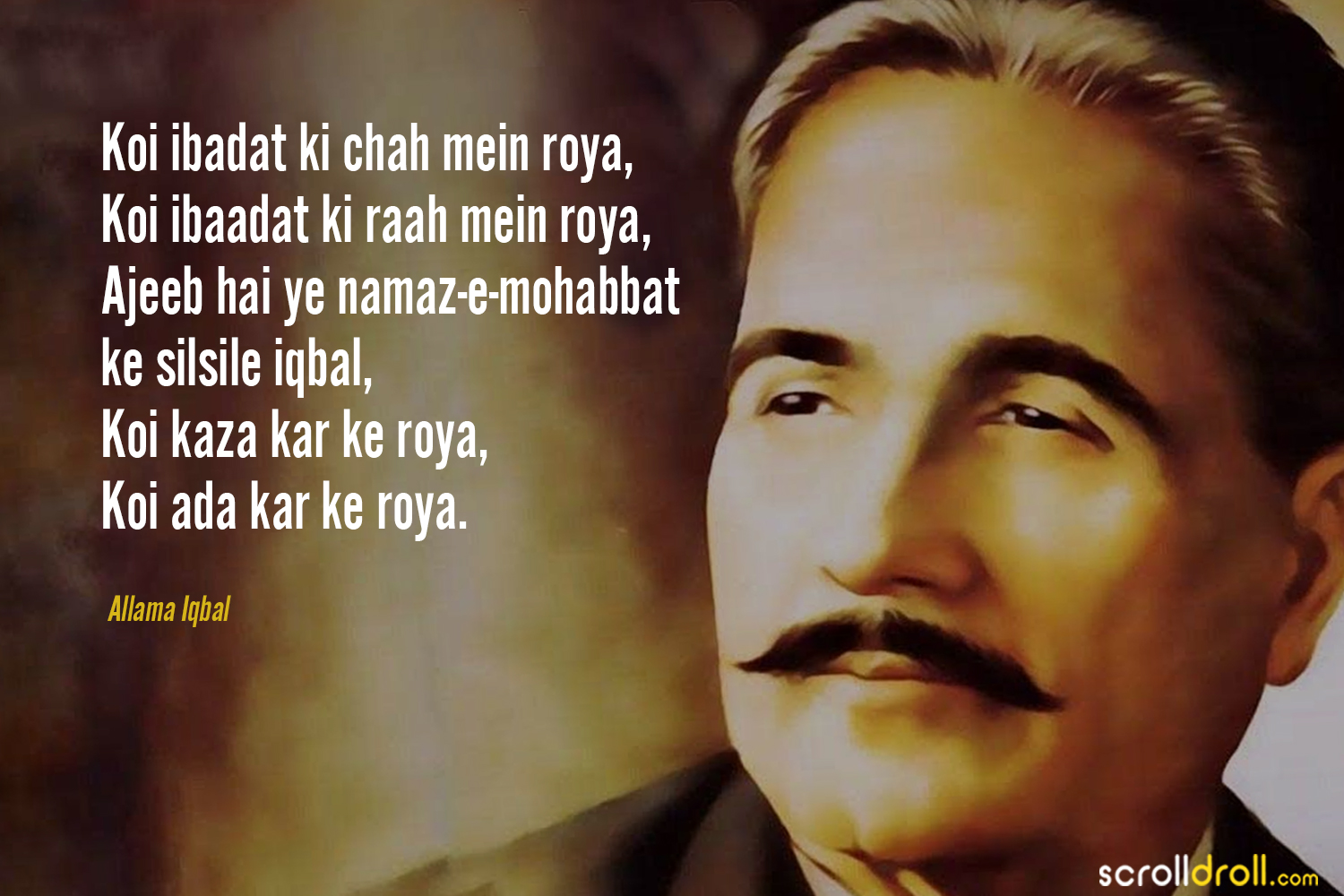World Urdu Day, celebrated worldwide on November 9th, marks the birth anniversary of the renowned Urdu poet, Dr. Allama Muhammad Iqbal. The primary objective of this celebration is to underscore the significance and widespread popularity of the Urdu language. Urdu holds a prominent position in the Indian subcontinent and is recognized as the national language of Pakistan. As we commemorate this day, it is vital to pay homage to the great poet, Allama Iqbal, who not only revitalized the youth but also rekindled the spirit of unity among the Muslim Ummah.

Source: Wikipedia
Urdu’s Roots and Development:
The origins of Urdu can be traced back to the 12th century, with its development centered in North India around Delhi. The language evolved from the local dialect spoken in the Delhi region and was heavily influenced by Arabic, Persian, and Turkish. The interactions with Arabic, Persian, and Turkish languages occurred during the invasions of the Indian subcontinent by Persian and Turkic forces from the 11th century onward. Urdu continued to evolve during the Delhi Sultanate (1206–1526) and the Mughal Empire (1526–1858), playing a pivotal role in shaping its distinct characteristics.
Linguistic Connections: Urdu and Hindi:
Urdu and Hindi both belong to the Hindustani language family. Some linguists suggest that early forms of Urdu emerged from the medieval Apabhraṃśa register of the Shauraseni language, which is also the ancestor of various modern Indo-Aryan languages. Khariboli, the native language in the Delhi region, was the precursor to Old Hindi, belonging to the Western Hindi group of the Central Indo-Aryan languages.

Source: ScrollDroll
The Emergence of Hindustani: A Fusion of Cultures:
The encounter between Hindu and Muslim cultures during the Islamic conquests in the Indian subcontinent (12th to 16th centuries) led to the development of Hindustani, characterized by its composite Ganga-Jamuni tehzeeb. In the 18th century, Urdu became a literary language, resulting in the coexistence of two similar standard forms in Delhi.Since the partition of India in 1947, a third standard form has arisen in Pakistan.
The Journey of the Name ‘Urdu’:
The term ‘Urdu’ was first coined by the poet Ghulam Hamadani Mushafi around 1780. The word ‘Ordu’ means ‘army’ in Turkic languages. Previously, it was known as ‘Zaban-e-Urdu-e-Mualla’ or ‘the language of the exalted camp.’ It had earlier names like Hindvi, Hindi, and Hindustani.

Source: Dawn Images
Allama Muhammad Iqbal: The Visionary Poet:
Allama Iqbal, also known as Sir Muhammad Iqbal, was a multifaceted Muslim philosopher, poet, scholar, and politician of the early 20th century. He is renowned for his Urdu philosophical poetry, emphasizing Islam’s essence and advocating for the cultural and intellectual rejuvenation of the Islamic community. Some of his famous works include ‘Bang-i-Dara,’ ‘Bal-e-Jibril,’ ‘Zarb-i-Kalim,’ ‘Armaghan-e-Hijaz,’ and several others, reflecting his blend of Persian mysticism and patriotism. Iqbal’s patriotic poetry also includes the famous ‘Tarana-e-Hind,’ commonly known as ‘Saare Jahan Se Achcha.’
World Urdu Day Celebrations and Significance:
World Urdu Day is an occasion to commemorate and honor the contributions of Allama Iqbal and to celebrate the enduring significance of the Urdu language. Prestigious ceremonies and events are held in prominent institutions across Pakistan and India to highlight the importance of Urdu and pay tribute to Allama Iqbal’s invaluable legacy.



















































































